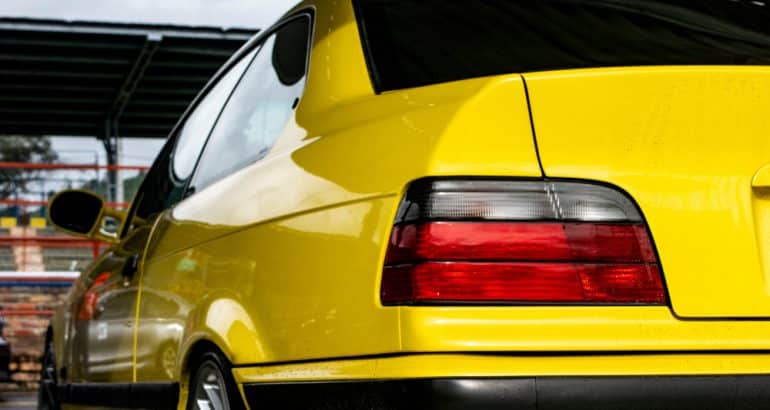
If you are a car enthusiast who has shopped for insurance one of the biggest differences in the type of coverage you can get is how insurance companies determine the value of your vehicle. Knowing the difference is between the types of policies, and how and when valuation is determined and in the event of a claim, whether you or the insurance company has the burden to prove the value can be critical to getting the payout that is inline with your expectations.
Not having the right kind of policy can result in a loss payout that is vastly different than you think you should get. This is particularly true if you are have a modified car, collector car, one of kind vehicle, supercar or other vehicle where leaving the value solely up the insurance company at the time of a claim could have significant ramifications. This is particularly painful when the loss isn’t your fault.
Insurance Value Settlement Types – A Primer
First, let’s cover what the common insurance settlement types are. There are generally 4 commonly accepted settlement types:
- Actual Cash Value
- Stated Value
- Replacement Value
- Agreed Value
Replacement value is more commonly found in builds and structure insurance, both personal and commercial. However, when it comes to personal automotive policies you generally will only find three of these types used. Though, that doesn’t mean every insurance company offers all three. In fact, many insurance companies only offer one of the three.
Valuation Burden
Second, lots talk about the concept of valuation burden. This is not a technical or industry term, but unless you goal is to become an expert on insurance, we feel this concept really boils down what matters in a practical sense about the settlement types.
While there are many differences between the different types of policy valuation, we feel the most significant is one is who has the primary burden of proving the value at the time of a loss. We refer to this as the valuation burden, and for car enthusiasts we feel it’s one of the most important things to consider about each of these settlement types.
Why does this matter to you? Because if you don’t agree with the value, if the burden is on you to prove the value at the time of the claim, it may be challenging time. You may find yourself in a position where you are without a vehicle or a payout while you have to fight for the proper value. We say it all of the time, at the time of a claim is the WORST time to find out you don’t agree with your insurance company on the vehicle of the vehicle.
Another interesting situation is when you have a not at fault accident. In that situation the burden of valuation may actually vary. If you have, for example agreed value insurance, and a loss occurs where you are not at fault, the at fault party’s insurance may only have the burden of valuation up to ACV. In that instance, it’s your insurance company that may make up the difference. So in that situation the delta between what the at fault company is willing to pay and expected value either shifts to you or to your insurance company. This is one of the many reasons, even if you are not at fault, you should engage your own insurance company in any claims.
Of course, if you want to know what to do when you and your insurance disagree on value, or how your insurance company determines the value of your car. we’ve got two blog posts about that.
Actual Cash Value
Actual Cash Value (ACV) is the most common type of type settlement used in personal auto insurance. It’s the “typical” method used by your everyday car insurance policy by most mainstream carriers. Actual Cash Value is determined by the insurance adjustor (who works for the insurance company) based on USED car values that best match your vehicle. They generally do NOT consider enthusiast markets, specialty trim lines, modifications or other non-standard valuation metrics, though certain companies and policies may.
In fact, they generally use a valuation company or catalog. The most common is a company known as CCC. The vast majority of the insurance industry uses CCC reports to determine the ACV. So, in the event of a total loss, like a significant accident or theft, this is the value the adjuster will use. It’s also important to know that insurance company calculate whether to “total” a vehicle based on it’s value, which is also done using the Actual Cash Value method. It’s often also the value used when calculating diminishing value.
Actual Cash Value Valuation Burden
With actual cash value policies, the burden is generally on the insurance company to determine the actual cash value. This is why they often use an independent service like CCC, it provides them documentation on the value and it’s from a third party. Of course, the vast majority of CCC’s income comes from insurance companies so while they may not necessarily be wrong, don’t expect them to favor your point of view.
The challenge comes in, once they have documentation about the ACV of the vehicle, if you disagree with the value they present for any reason, the burden shifts to you to prove it. Even if you can prove, they may feel their valuation documentation is sufficient and refuse to meet your expected valuation.
Also, your insurance company often has excluded uncovered modifications. And even if its not your fault, don’t expect your insurance company to battle for extra value on your behalf for uncovered modifications.
One additional note for enthusiasts, insurance companies – whether your own or an at fault company – they may not be required to consider modifications when determining ACV. With your own insurance company they are likely outright excluded unless you declared them and have them covered under an endorsement (policy add on).
Even if the difference isn’t due to uncovered items like modifications, if the difference is significant, you’ll likely have no choice but to hire an appraiser or attorney to argue the difference.
Stated Value
Stated Value policies are often offered as a mainstream or cost effective “enthusiast” coverage. However, be careful. The name can be misleading. While it sounds like you are getting the “stated” value as an agreement, MOST traditional stated policies use language that says you will get the the LESSER of the stated value or the actual cash value.
This may leave you getting less for your car than you expected. It may also leave you with less than 100% of the true replacement value of the car and any modifications. Like Actual Cash Value, stated value policies do not often account for collector or enthusiast markets, because the insurance company has the option to use their own valuation service.
Stated Value policies are also very commonly offered in supercar coverage from mainstream carriers. They may leave you thinking you’ll get a specific value for your Porsche, McLaren, Ferrari, Lamborghini or other supercar. However, when they calculate and compare stated value to any available book/actual cash value, so you may wind up with less.
We recommend being careful when brokers or companies try to push stated value as a great option for enthusiasts, or as equal to agreed value. While there are certainly places where stated value makes sense, don’t fall for the potential trap of thinking you are assured of getting the stated value, or that stated value is the same as agreed value.
Stated Value Valuation Burden
As we’ve discussed with stated value policies, your insurance company agrees to consider the value of your vehicle higher. In this instance the total valuation burden is considered “shared”.
However, their burden is actually only to the actual cash value. Beyond the actual cash value they may agree to pay up to stated amount, largely because they have factored that into the premium. However, if they don’t agree with the stated value of the car, the burden moves to you for anything above and beyond the actual cash value.
Stated value policies make it easier to recover the value of items like modifications, because they were declared up front. But with stated value policies, in the event there is any disagreement, the burden falls to you beyond the actual cash value. And just because modifications value can be justified, but sure they are actually covered by your stated value policy.
One important thing we should note is that many track day insurance policies are written as stated value.
Agreed Value and Guaranteed Value
Most true specialty and enthusiast focused insurance companies offer Agreed Value policies, which is the industry standard term. Some companies, like Hagerty, offer what they call “guaranteed value” policies. Agreed and Guaranteed Value policies are similar, with Guaranteed Value offerings generally bundling additional coverage or offering a more clear value guarantee.
Agreed Value and Guaranteed Value policies generally provide for a specific and agreed upon value up front. The value is the basis for any payments in the event of a total loss.
Additionally, if you’ve restored, made modifications or otherwise have unique situation, many companies that offer agreed value policies will let you factor this into the policy. This is a great option, and not just for high end cars or collectors. These policies are often offered starting as low as $5,000 of coverage. They have applicability is just about any situation where the Actual Cash Value wouldn’t represent the true replacement cost of the vehicle. In many cases unless the value or risk is considered very high, your insurance company may not even require an appraisal. In those situations, pictures and/or documentation is generally requested.
With Agreed Value and Guaranteed Value policies you’ll always want to verify both what the insurance company thinks the value of your specialty car is and where they get the value from, or be prepared to request what you expect the replacement value to be. For example, Hagerty has it’s own value database. While this is great because it does evaluate the enthusiast market, it doesn’t always mean their value will match what you expect, particularly if you have modifications or a unique vehicle.
It should also be noted that with Agreed Value and Guaranteed Value policies that the additional value is factored into the price. So while you may wind up paying a little bit more in some situations, you are also getting more. Though interestingly, these enthusiast and collector policies often actually save you money over traditional insurance because of how they are used.
Agreed Value Valuation Burden
Agreed value policies are unique in that up to the agreed amount, the burden on a change in valuation generally lies with the insurance company. These are different than actual cash value and stated value because there is a contractual bond to that value that generally would require the insurance company to show the valuation is incorrect or misrepresented. This is also why the value is usually reviewed before they offer you a policy.
While for most agreed value policies an appraisal is not required, we do still recommend keeping some documentation on how you come up with the value in case there is a dispute. In our experience, these situations are rare. Which is what makes agreed value policies ideal for car enthusiasts, even if you don’t have a traditional classic or collector car, where available.
For Information Purposes Only
Of course, like all of our blog posts – this information is intended to be educational. This blog post is intended for general knowledge and is not direct insurance or legal advice. You should read and review any policies carefully.
Shift Brokers Can Help You Navigate
We also recommend you work with an insurance broker who can help you navigate different policies. The best part about brokers are, they don’t represent the insurance companies. They represent you.
Shift Brokers is car insurance for car enthusiasts. We can help you understand the how different carriers will value your specialty car. In addition, we can help you select from insurance companies that will get you the kind of service and coverage you need. And because we are car enthusiasts and specialize in policies for car enthusiasts, we can help you navigate the unique needs and situations only car enthusiasts find themselves in. The best part is, because we are brokers, we represent you, not the insurance companies.
Request a quote and lets start talking cars.


